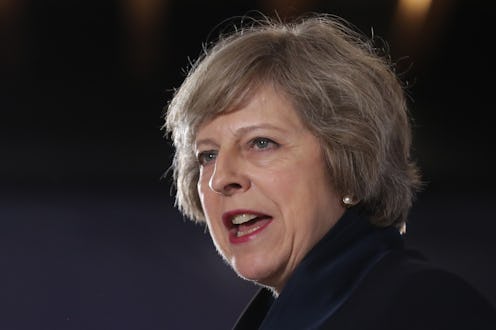News
Who is Theresa May?
Following Britain's decision to leave the European Union last month, the fallout from the "Brexit" referendum has cut through Britain's political class like a hot knife through butter. As of Monday, only one candidate remains, the controversial Home Secretary, Theresa May, and it seems inevitable that she will succeed Cameron at 10 Downing Street. But who is Theresa May? How did she end up in line to become the leader of Britain's government, and what does her premiership mean for the United Kingdom?
First, it's important to remember a few tidbits about the U.K.'s governmental system: Voters don't choose the prime minister directly; instead, they vote for their local members of parliament (MPs), and the political party with the most MPs in the House of Commons is invited by the Queen to form a government. The head of that party becomes the prime minister.
When Cameron announced his resignation following the EU referendum, instead of how it would work in the United States — where a president resigning would sweep the vice president automatically into office — he triggered a leadership battle within his political party, the Conservative Party. Essentially, this means that whichever minister could get the most support of the other MPs would become the leader of the Conservative Party, and, thus the leader of the U.K. government.
But in the weeks after the EU Referendum, there's been nothing short of a hot dumpster fire of Machiavellian betrayal and clumsiness, and one-by-one, all of the presumed successors to Cameron's post have fallen, leaving just Theresa May.
May, who currently serves as the Home Secretary for Her Majesty's Government, has long been a controversial politician. TIME reported that she supported using the U.K.'s Terrorism Act to detain David Miranda, husband of journalist Glenn Greenwald, and has made divisive remarks on immigrants in Britain. Sometimes compared to German Chancellor Angela Merkel, even if May inherits Cameron's post, she may still be forced to call a general election.
If she ends up prime minister, May would also be the second woman to occupy Downing Street — with even more controversial Margaret Thatcher being the first. Both hailed from the Conservative Party.
